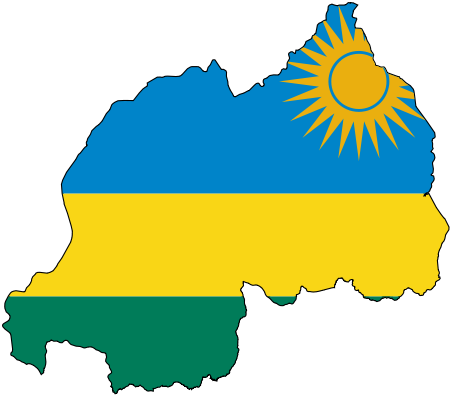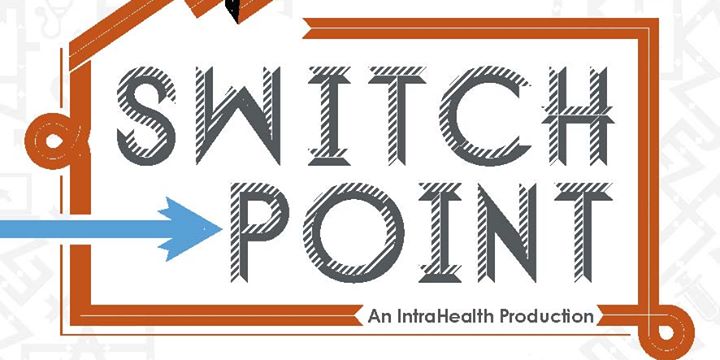Partnerships for Future
The Public Diplomacy (PD) Section of the U. S. Office of Palestinian Affairs (OPA) invites Palestinian and American not-for-profit non-governmental organizations (NGOs), associations, non-profit higher education institutions, or non-profit social enterprises based in the West Bank, East Jerusalem, or
Gaza to submit proposals to design and implement a program to bridge the frequently-noted “skills gap” of Palestinian new college graduates, by fostering partnerships between universities, faculty advisors, syndicates, professional associations, and other private and public sectors institutions to team up in creating and implementing a viable strategy to prepare the workforce of the future by developing a sustainable capability and educational institutions for continuous upskilling and modernize selected universities to support their desire to become world-class institutions..
This program must be designed to implement activities that advance the applicant’s goals and the U. S. OPA-PD mission, including but not limited to:1) Building Palestinian institutions, both governmental and non-governmental, that effectively address the needs and aspirations of the Palestinian people;2) Building a prosperous Palestinian economy, led by a thriving private sector, that provides equitable and inclusive economic opportunities and improves daily life for Palestinians.
Education systems around the world are united in their awareness to the need to adapt and update their education programs to better prepare students for the future of work.
Worldwide, there is a vital need to ensure young people at schools, universities and vocational education and training institutions are equipped with the skills and competences necessary to support the drive towards more sustainable, and inclusive economies.
In the Palestinian territories and East Jerusalem, there are many additional factors that make preparing the students for a successful transition to work, even more challenging.
High unemployment rates and general economic stagnancy contribute to political and social existing instability.
According to the Palestinian Central Bureau of Statistics - even before the most recent escalation in conflict decimated the Gazan economy and severely slowed the West Bank and Jerusalem economies - 2 7. 3% of all Palestinians were unemployed.
The proportion was higher among women (47%), Gazans (50%), and youth (45%).
The investment climate does notattract foreign investors or encourage local private sector initiatives.
Startups and small businessesare a successful driver of economic growth and job creation worldwide, but a thriving smallbusiness sector requires a better regulatory enabling environment, and a lobar forced with skillsthat match market needs.
Youth are not finishing school, or university, with the skills andknowledge they need to be successful in the market.
Culturally, families push their children towarduniversity and specifically, scientific subjects; however, the market cannot support the numbers ofgraduates that Palestinian universities are graduating.
Vocational training is underutilized.
Theresult is significant underemployment at the beginning of many people’s careers.
Overviewplanning for labor market requirements is not provided on a national scale, and neither thegovernment nor the universities are engaging with students and families to encourage studyingnon-saturated fields.
At the opposite end of the spectrum, difficult economic situation is oftendriving young people to take a low wage, non-skilled jobs in order to support their families, ratherthan enroll in even a short-term training course that could provide better long-term opportunities.On the other hand, innovation ecosystem is emerging but fragmented and disconnected.
Whilemost universities have labs, makerspaces, incubation centers, entrepreneurship centers, theirinterconnectedness and connection with the private sector and investors, which forms the actualinnovation ecosystem, has not yet coalesced, and higher education research and developmentprograms are very limited.
Without additional support, it is difficult for universities and othervarious players to successfully build the national innovation capacity and propel entrepreneurstowards greater success.Both the public and private sectors see the critical need to strengthen and build a workforce capableof working in a space filled with the crucial components of the country’s journey to self-reliance.In addition, workforce training needs are changing rapidly, and are in response to the emergingFourth Industrial Revolution and overall worldwide conversion to a digital landscape.Accordingly, the purpose of this program is to improve university curriculum and learningprocesses through well established and sustained partnerships with the private sector, consequentlycreating ways to ensure the workforce is trained and prepared for the new and evolvingtechnologies and modern markets’ needs.Applications should provide a detailed manifest of activities the implementing organization willconduct under the grant.
The proposed program must include substantive engagement withAmerican people, institutions, ideas, and/or ideals in order to improve American-Palestinianrelations and create greater opportunities for mutually beneficial partnership and cooperation.As the activity name implies, a core principle is to seek, identify, develop and support partnershipsto achieve the program objectives.
OPA encourages applicants to strategically engage with a widerange of partners from the public and private sectors who can support, advance, expand oraccelerate the programPriority Region:
West Bank, Gaza, and East Jerusalem.Program Objectives:
Working primarily at the local level and using an evidence-based approach, all proposed projects must aim to advance the OPA-PD mission goals stated above, contain a substantive American element, and achieve at least two of the following specific objectives:
1. Universities develop and begin to implement a strategic plan to upgrade their education models to better prepare students for the labor market as evidenced by a new co-curricular program, designed by faculty to facilitate better access to employment for their students.
2. Palestinian faculty and staff gain new knowledge, skills, and resources to design and implement curricular and co-curricular programs that better support their students' future employment and labor market needs.
3. Development and implementation of integrated courses and academic programs; identify, develop, and implement appropriate and affordable technology platforms; and improve curriculum and pedagogy through universal design for learning.
4. Improved research and innovation capacity:
development and implementation of comprehensive university plans to improve faculty and student research and innovation which may include strategic partnerships with U. S. higher education institutions.
This objective should also explore and support opportunities for the selected universities to generate and apply research to address local and national challenges.
For any of the above objectives to be achieved, the Applicant must engage the private sector and facilitate effective collaboration among multiple stakeholders.
This program must be designed to implement activities that advance the applicant’s goals and the U. S. OPA-PD mission, including but not limited to:1) Building Palestinian institutions, both governmental and non-governmental, that effectively address the needs and aspirations of the Palestinian people;2) Building a prosperous Palestinian economy, led by a thriving private sector, that provides equitable and inclusive economic opportunities and improves daily life for Palestinians.
Education systems around the world are united in their awareness to the need to adapt and update their education programs to better prepare students for the future of work.
Worldwide, there is a vital need to ensure young people at schools, universities and vocational education and training institutions are equipped with the skills and competences necessary to support the drive towards more sustainable, and inclusive economies.
In the Palestinian territories and East Jerusalem, there are many additional factors that make preparing the students for a successful transition to work, even more challenging.
High unemployment rates and general economic stagnancy contribute to political and social existing instability.
According to the Palestinian Central Bureau of Statistics - even before the most recent escalation in conflict decimated the Gazan economy and severely slowed the West Bank and Jerusalem economies - 2 7. 3% of all Palestinians were unemployed.
The proportion was higher among women (47%), Gazans (50%), and youth (45%).
The investment climate does notattract foreign investors or encourage local private sector initiatives.
Startups and small businessesare a successful driver of economic growth and job creation worldwide, but a thriving smallbusiness sector requires a better regulatory enabling environment, and a lobar forced with skillsthat match market needs.
Youth are not finishing school, or university, with the skills andknowledge they need to be successful in the market.
Culturally, families push their children towarduniversity and specifically, scientific subjects; however, the market cannot support the numbers ofgraduates that Palestinian universities are graduating.
Vocational training is underutilized.
Theresult is significant underemployment at the beginning of many people’s careers.
Overviewplanning for labor market requirements is not provided on a national scale, and neither thegovernment nor the universities are engaging with students and families to encourage studyingnon-saturated fields.
At the opposite end of the spectrum, difficult economic situation is oftendriving young people to take a low wage, non-skilled jobs in order to support their families, ratherthan enroll in even a short-term training course that could provide better long-term opportunities.On the other hand, innovation ecosystem is emerging but fragmented and disconnected.
Whilemost universities have labs, makerspaces, incubation centers, entrepreneurship centers, theirinterconnectedness and connection with the private sector and investors, which forms the actualinnovation ecosystem, has not yet coalesced, and higher education research and developmentprograms are very limited.
Without additional support, it is difficult for universities and othervarious players to successfully build the national innovation capacity and propel entrepreneurstowards greater success.Both the public and private sectors see the critical need to strengthen and build a workforce capableof working in a space filled with the crucial components of the country’s journey to self-reliance.In addition, workforce training needs are changing rapidly, and are in response to the emergingFourth Industrial Revolution and overall worldwide conversion to a digital landscape.Accordingly, the purpose of this program is to improve university curriculum and learningprocesses through well established and sustained partnerships with the private sector, consequentlycreating ways to ensure the workforce is trained and prepared for the new and evolvingtechnologies and modern markets’ needs.Applications should provide a detailed manifest of activities the implementing organization willconduct under the grant.
The proposed program must include substantive engagement withAmerican people, institutions, ideas, and/or ideals in order to improve American-Palestinianrelations and create greater opportunities for mutually beneficial partnership and cooperation.As the activity name implies, a core principle is to seek, identify, develop and support partnershipsto achieve the program objectives.
OPA encourages applicants to strategically engage with a widerange of partners from the public and private sectors who can support, advance, expand oraccelerate the programPriority Region:
West Bank, Gaza, and East Jerusalem.Program Objectives:
Working primarily at the local level and using an evidence-based approach, all proposed projects must aim to advance the OPA-PD mission goals stated above, contain a substantive American element, and achieve at least two of the following specific objectives:
1. Universities develop and begin to implement a strategic plan to upgrade their education models to better prepare students for the labor market as evidenced by a new co-curricular program, designed by faculty to facilitate better access to employment for their students.
2. Palestinian faculty and staff gain new knowledge, skills, and resources to design and implement curricular and co-curricular programs that better support their students' future employment and labor market needs.
3. Development and implementation of integrated courses and academic programs; identify, develop, and implement appropriate and affordable technology platforms; and improve curriculum and pedagogy through universal design for learning.
4. Improved research and innovation capacity:
development and implementation of comprehensive university plans to improve faculty and student research and innovation which may include strategic partnerships with U. S. higher education institutions.
This objective should also explore and support opportunities for the selected universities to generate and apply research to address local and national challenges.
For any of the above objectives to be achieved, the Applicant must engage the private sector and facilitate effective collaboration among multiple stakeholders.
Relevant Nonprofit Program Categories
Obtain Full Opportunity Text:
U.S. Office of Palestinian Affairs Official Webpage
Additional Information of Eligibility:
Eligible primary applicants for grant funding must be Palestinian or American not-for-profit non-governmental organizations (NGOs), associations, non-profit higher education institutions, or non-profit social enterprises based in West Bank, Gaza and/or East Jerusalem.
Full Opportunity Web Address:
https://palestinianaffairs.state.gov/grants-and-funding-opportunities/
Contact:
Agency Email Description:
Mailbox for applications and inquiries
Agency Email:
Date Posted:
2024-06-07
Application Due Date:
Archive Date:
2024-08-06
Social Entrepreneurship
Spotlight
Rwanda as Social Entrepreneur Fund Beneficiary

The Republic of Rwanda has been picked as one of the six African countries as beneficiaries for a new fellowship fund program designed at supporting social entrepreneurs in tackling issues on food security.

